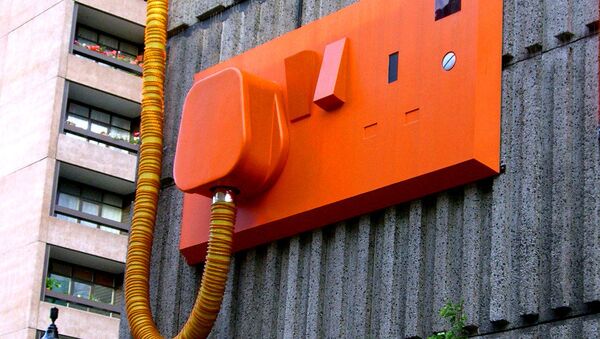The Energy and Climate Change Select Committee has raised concerns about the profits of companies involved in the construction of gas and electricity distribution infrastructure, and have called on the country's energy regulator Ofgem to "get its act together" and deliver better value for British consumers.
Ofgem blasted for failing to keep energy bills down: Ofgem has been ordered to “get its act together” to keep… http://t.co/r9LH3tkkWa
— Energy Live News (@EnergyLiveNews) February 23, 2015
It's estimated that network costs make up around 23 percent of gas and electricity bills in the UK.
Read our response to the Energy and Climate Change Committee Report on energy network costs http://t.co/80sPFxiPge
— ofgem (@ofgem) February 23, 2015
Energy companies are charged for their use of various forms of infrastructure used in the distribution of electricity and gas, with the costs then passed on to consumers.
In 2013, new regulations were introduced to try and encourage network providers to make their services more affordable, however the committee's Chair, Tim Yeo MP said Ofgem needs to do more to crackdown on energy network costs.
"The costs charged by the companies that have a near monopoly over the UK's gas and electricity networks are often overlooked when energy bills are discussed. But network costs are one of the main reasons dual fuel [electricity and gas] bills have risen in recent years.
"Ofgem has created a new regulatory framework designed to ensure that network costs are competitive and that profits aren't excessive, but there is clear evidence that the companies are making higher profits than expected."
"Ofgem's Chief Executive told us that we would have to wait eight years to see whether value for money was being delivered for bill payers. This is too long for hard pressed consumers to wait."
In the report, MPs were particularly critical of the seemingly generous price caps and targets enforced on the network providers by Ofgem, while they also recommended simplifying the charging systems to try and make things more efficient.
It is important that consumers are given the full picture about all their suppliers’ tariffs http://t.co/o5v6hDBS0c
— ofgem (@ofgem) February 20, 2015
Mr. Yeo MP from the Commons committee said: "Ofgem must get its act together and scrutinise these near monopolies more effectively. Simpler charging methodologies are needed to strengthen the market's ability to scrutinise costs and increase the pressure for greater cost-saving efficiencies. Barriers preventing smaller players from entering the market must be removed to drive down costs for consumers."
Following the release of the report, an Ofgem spokesperson said the regulator is working towards implementing some of the recommendations put forward by the House of Commons report.
"Ofgem notes the committee's views and welcomes debate on the regulation of the energy network and believes our regulation has delivered value for money. Britain's energy network is 17% cheaper in real terms than 25 years ago, £80 billion of investment has been secured, and reliability has improved by 30%.
"We are in the process of implementing a number of the actions the report highlights, including introducing more competition to networks and looking to increase the notification period of network charges. Additionally, we estimate that our innovation stimulus will see companies realise around £900 million of benefits to consumers in the next eight years."
The latest report, follows increased debate about whether British energy consumers are getting value for money, after Ofgem found that the country's six big energy companies were charging loyal customers more than £200 more a year than those who shop around between different suppliers.
This comes as Ofgem last week announced a new crack down on so-called "white labelling," which will force companies to let customers know if they have cheaper deals marketed under different brands.




